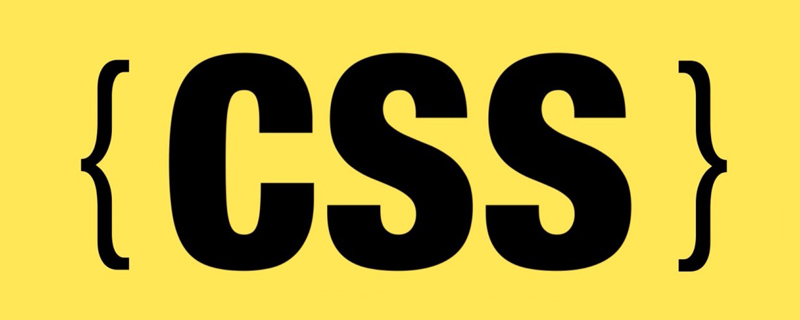The display attribute in css is used to specify the type of box that the element should generate. The display attribute is a commonly used attribute in front-end development. Commonly used attribute values include block, none, inline, and inline-block.

#Every element on the web page is a rectangular box. The display attribute specifies the type of box the element should generate. The display attribute is an attribute we often use in front-end development.
(Learning video recommendation: css video tutorial)
Introduction to common attribute values:
block The default value of the block object. Add a new line after the object with this value
none to hide the object. Unlike the hidden value of the visibility attribute, it does not retain its physical space for the hidden object
inline The default value of the inline object. Use this value to remove the line
inline-block inline block element from the object. This attribute value combines the characteristics of inline and block, that is, it is both an inline element and can set width and height.
1. display:block
1. block: The element will be displayed as a block-level element, with line breaks before and after the element. It is usually used to convert inline elements into block-level elements. use. So what are block-level elements? What are inline elements?
2. Block-level elements:
are always displayed in the form of a block, occupying an entire line. Several sibling block elements will be arranged from top to bottom (except when using the float attribute).
You can set the height, width, outer patch (margin) in each direction, and inner patch (padding) in each direction.
When the element width (width) is not set, its width is 100% of its container, unless we set a fixed width for it.
Block-level elements can be nested within other block-level elements or inline elements.
The display attribute value of block-level elements defaults to block.
3. Inline elements
It will not occupy a whole line alone, but only occupy the space where its own width and height are. That is, the width and height of the element are determined by its text. Open the content. Several sibling inline elements will be arranged from left to right (that is, an inline element can be on the same line as other inline elements), and from top to bottom.
The height and width of inline elements cannot be set. The height is generally determined by the size of its font, and its width is controlled by the length of the content.
Inline elements can only set left and right margin values and left and right padding values, but cannot set upper and lower margin values and upper and lower padding values. Therefore, we can change the width of inline elements by setting the left and right padding values.
Inline elements generally cannot contain block-level elements.
The display attribute value of block-level elements defaults to inline.
2. display:none
The value of display:none indicates that the element is not displayed. When you want an element to be hidden, you can set this attribute for an element and it will disappear from the web page. However, the element is not deleted from the document. It is just hidden in the web page structure and not displayed on the web page. But if you want the element to be displayed, you can set display:block to the element, and the element can be displayed on the web page.
3. display:inline
The function of display:inline can convert a block-level element into an inline element. Then this block-level element will no longer be able to set the width, height, and up and down margins. and padding. The actual width and height of this block-level element are auto, not the values we set.
4. display:inline-block
Judging from the name, we can get that it combines inline and block and retains their characteristics. Therefore, the element with the inline-block attribute set not only has the feature that the block element can set the width and height attributes, but also maintains the feature that the inline element does not wrap.
Related recommendations: CSS tutorial
The above is the detailed content of What does the display attribute in css do?. For more information, please follow other related articles on the PHP Chinese website!
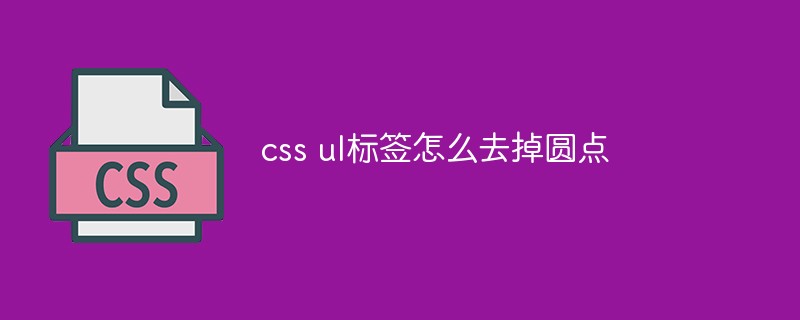 css ul标签怎么去掉圆点Apr 25, 2022 pm 05:55 PM
css ul标签怎么去掉圆点Apr 25, 2022 pm 05:55 PM在css中,可用list-style-type属性来去掉ul的圆点标记,语法为“ul{list-style-type:none}”;list-style-type属性可设置列表项标记的类型,当值为“none”可不定义标记,也可去除已有标记。
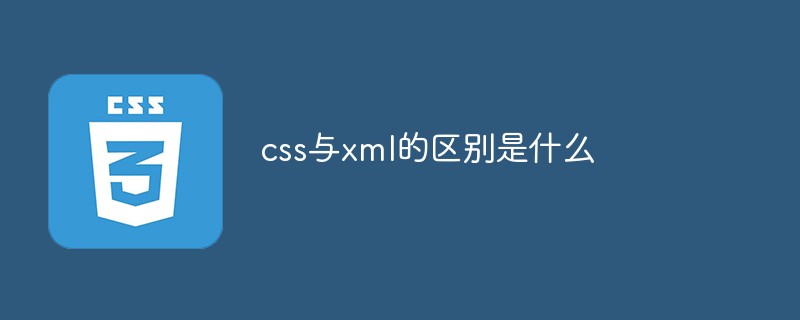 css与xml的区别是什么Apr 24, 2022 am 11:21 AM
css与xml的区别是什么Apr 24, 2022 am 11:21 AM区别是:css是层叠样式表单,是将样式信息与网页内容分离的一种标记语言,主要用来设计网页的样式,还可以对网页各元素进行格式化;xml是可扩展标记语言,是一种数据存储语言,用于使用简单的标记描述数据,将文档分成许多部件并对这些部件加以标识。
 css3怎么实现鼠标隐藏效果Apr 27, 2022 pm 05:20 PM
css3怎么实现鼠标隐藏效果Apr 27, 2022 pm 05:20 PM在css中,可以利用cursor属性实现鼠标隐藏效果,该属性用于定义鼠标指针放在一个元素边界范围内时所用的光标形状,当属性值设置为none时,就可以实现鼠标隐藏效果,语法为“元素{cursor:none}”。
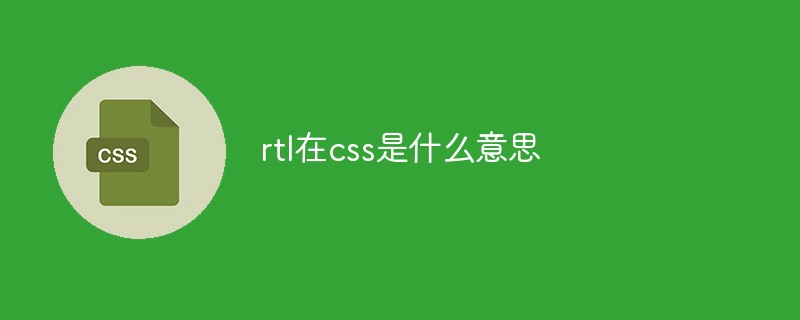 rtl在css是什么意思Apr 24, 2022 am 11:07 AM
rtl在css是什么意思Apr 24, 2022 am 11:07 AM在css中,rtl是“right-to-left”的缩写,是从右往左的意思,指的是内联内容从右往左依次排布,是direction属性的一个属性值;该属性规定了文本的方向和书写方向,语法为“元素{direction:rtl}”。
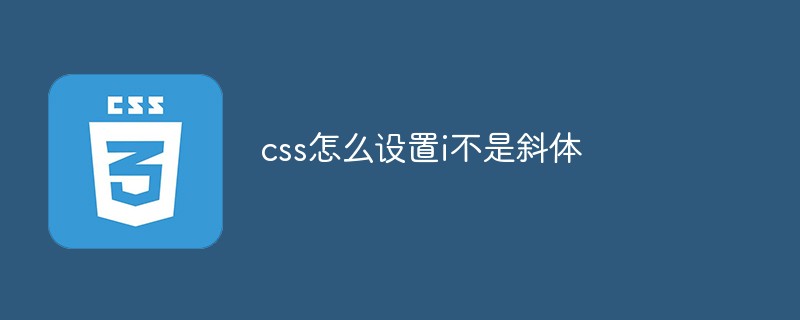 css怎么设置i不是斜体Apr 20, 2022 am 10:36 AM
css怎么设置i不是斜体Apr 20, 2022 am 10:36 AM在css中,可以利用“font-style”属性设置i元素不是斜体样式,该属性用于指定文本的字体样式,当属性值设置为“normal”时,会显示元素的标准字体样式,语法为“i元素{font-style:normal}”。
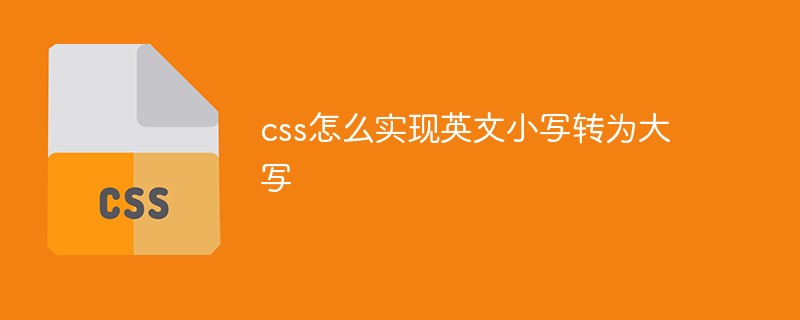 css怎么实现英文小写转为大写Apr 25, 2022 pm 06:35 PM
css怎么实现英文小写转为大写Apr 25, 2022 pm 06:35 PM转换方法:1、给英文元素添加“text-transform: uppercase;”样式,可将所有的英文字母都变成大写;2、给英文元素添加“text-transform:capitalize;”样式,可将英文文本中每个单词的首字母变为大写。
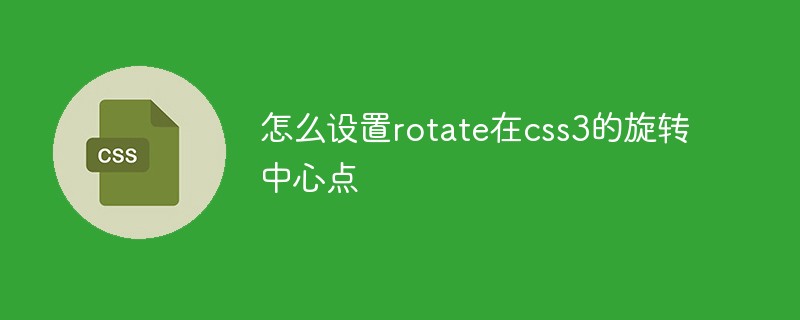 怎么设置rotate在css3的旋转中心点Apr 24, 2022 am 10:50 AM
怎么设置rotate在css3的旋转中心点Apr 24, 2022 am 10:50 AM在css3中,可以用“transform-origin”属性设置rotate的旋转中心点,该属性可更改转换元素的位置,第一个参数设置x轴的旋转位置,第二个参数设置y轴旋转位置,语法为“transform-origin:x轴位置 y轴位置”。


Hot AI Tools

Undresser.AI Undress
AI-powered app for creating realistic nude photos

AI Clothes Remover
Online AI tool for removing clothes from photos.

Undress AI Tool
Undress images for free

Clothoff.io
AI clothes remover

AI Hentai Generator
Generate AI Hentai for free.

Hot Article

Hot Tools

SublimeText3 Linux new version
SublimeText3 Linux latest version

WebStorm Mac version
Useful JavaScript development tools

Dreamweaver CS6
Visual web development tools

SAP NetWeaver Server Adapter for Eclipse
Integrate Eclipse with SAP NetWeaver application server.

SublimeText3 Chinese version
Chinese version, very easy to use





